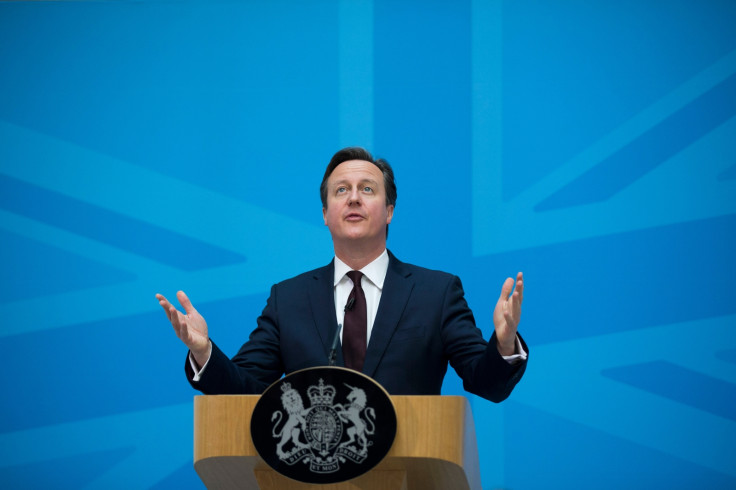Britain and the EU: David Cameron hopes to use Riga summit to kick off reform negotiations

David Cameron will use his first talks with EU leaders since re-election to set out his plans to reform the 28-nation bloc before Britain's In/Out referendum in 2017.
The Prime Minister is meeting the leaders at a summit in Riga, Latvia, between the EU and six former Soviet republics on 22 May to test the waters on whether they are willing to move ahead with reforms.
Speaking before travelling to Riga, Cameron said of the long road ahead for British and EU negotiators: "These talks will not be easy. They will not be quick. There will be different views and disagreements along the way.
"But by working together in the right spirit and sticking at it, I believe we can find solutions that will address the concerns of the British people and improve the EU as a whole. After all we are not alone in wanting to make the EU work better for people across Europe. And that is what I'm determined to do."
One of the main sticking points will be the British Prime Minister's "absolute requirement" that benefits for EU migrants within the bloc are curbed. His demand was made after it emerged that net migration to Britain had soared to more than 300,000 rather than the "tens of thousands" that he had promised.
By working together in the right spirit and sticking at it, I believe we can find solutions that will address the concerns of the British people and improve the EU as a whole. After all we are not alone in wanting to make the EU work better for people across Europe.
The Times reported, however, that senior diplomats believed that the demand to curtail benefits for EU migrants was "near impossible".
According to The Times, Cameron will focus on trying to persuade smaller states within the Union, especially those with borders with Russia.
Reuters reported that some European leaders were open to discussing Cameron's reform suggestions on immigration.
"I sincerely hope we can find good solutions for Britain," Danish Prime Minister Helle Thorning-Schmidt told reporters as she arrived for the Riga meeting.
Estonian Prime Minister Taavi Roivas said he would be open to Britain's proposals. However, he qualified his support, saying: "We are not thinking that we should lose or even have less of the main, basic freedoms of the EU. I think these freedoms are extremely important."
© Copyright IBTimes 2025. All rights reserved.





















